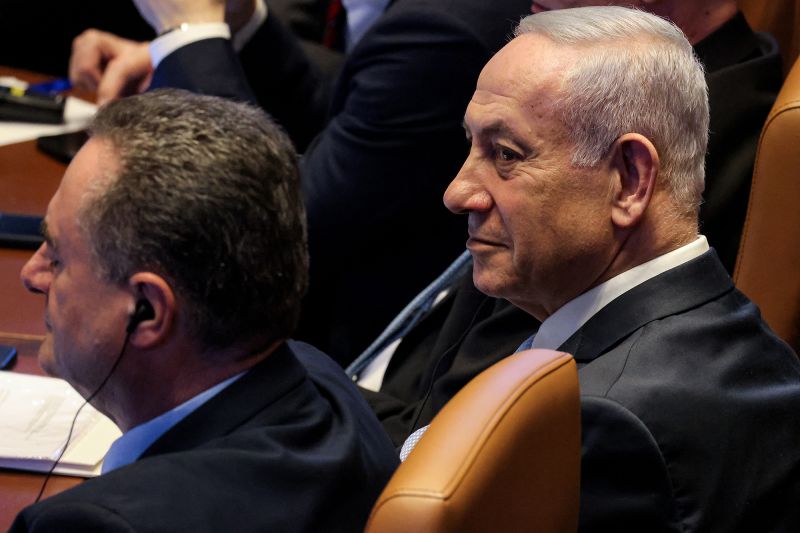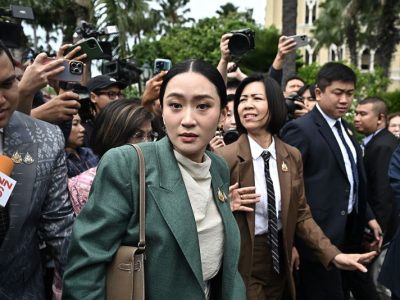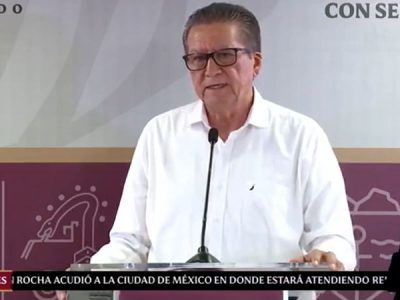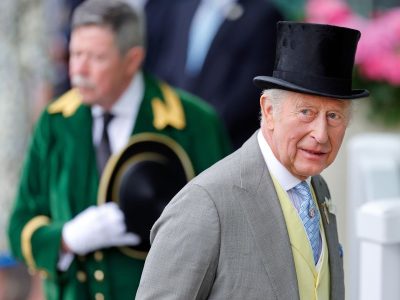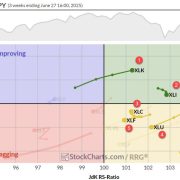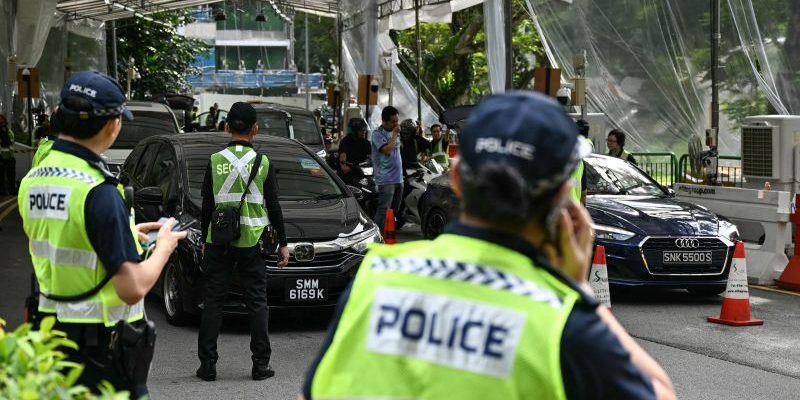
China will not send its defense minister to this year’s Shangri-La Dialogue, shunning a chance for a high-level meeting with US and Asian counterparts as tensions simmer with Washington.
China announced Thursday it will instead be represented by a delegation from the People’s Liberation Army National Defense University, marking the first time in five years a high-level delegation from Beijing will miss Asia’s largest defense and security summit.
The United States will be represented by Defense Secretary Pete Hegseth at the event, which often provides opportunities on the sidelines for rare face-to-face meetings between top generals and defense officials from the US and China.
Last year then-US Defense Secretary Lloyd Austin met with Minister of National Defense Adm. Dong Jun on the sidelines of the event and the two pledged to continue a US-China dialogue amid simmering military tensions over Taiwan and Chinese aggression in the South China Sea.
Beijing’s decision not to send Dong this year throws into question whether there will be any meeting between the US and China at a time of heightened tensions between the two.
China has railed against America’s efforts in recent years to tighten its alliances and defense posture in Asia, while economic frictions rose to historic levels earlier this year after US President Donald Trump’s imposition of tariffs on China sparked a tit-for-tat between the two countries that saw duties rise to more than 100% on each other’s goods.
While the two sides announced a temporary tariff truce earlier this month, tensions flared against this week. On Wednesday, two days before the forum’s opening, the US aimed a shock double punch targeting software exports to Chinese tech companies and study visas granted to Chinese students, risking a fragile trade war truce between Washington and Beijing.
At a Chinese Defense Ministry press conference on Thursday, a spokesperson ducked a question on why Beijing was not sending its defense minister to the Singapore forum, expected to be attended by defense chiefs from around Asia, including many more closely tied to Washington than Beijing.
China was “open to communication at all levels between the two sides,” a ministry spokesperson said when asked about a potential sidelines meeting with the US delegation.
“They’re torqued at us,” the official said.
“It’s a signal that they are concerned about the level of engagement, specifically with the United States, to send a message that everything is not completely normal within that and there’s probably some other underlying reasons about just uncertainty about what Shangri-La is intended to accomplish,” the official said.
China has traditionally had few friends at Shangri-La and its speakers face real-time, unscripted questioning from journalists and academics attending the conference.
Last year, Defense Minister Dong faced tough questions after, in a Friday note keynote speech, Philippine President Ferdinand Marcos Jr. denounced illegal, coercive and aggressive actions in the South China Sea in an apparent allusion to China.
China’s military has also been in the spotlight in recent years as its top ranks have been roiled by a sweeping corruption purge, with more than a dozen high-ranking figures in China’s defense establishment ousted since 2023.
Analysts said the absence of a high-level Chinese delegation at the defense summit may signal Beijing is emphasizing economics and trade over military relations in its foreign affairs at this time.
“While surely security engagements such (the Shangri-La Dialogue) … do matter in the broader scheme of geopolitics, at this juncture it seems regional governments are perhaps even more concerned about the tariff impact on their economies,” said Collin Koh, a research fellow at the S. Rajaratnam School of International Studies (RSIS) in Singapore
US is ‘here to deter adversaries’
Ahead of the weekend conference, much attention has focused on how US-led alliances across the region that grew during the Biden administration would hold up under Trump’s second term.
There was broad consensus among analysts that unlike the turmoil Trump has caused in Europe – with threats to pull back from NATO and abandon Ukraine in its fight against Russia’s invasion – the US role in Asia has largely been consistent, centered on a policy to counter Chinese influence and back Taiwan.
Hegseth’s first trip to Asia as Defense Secretary began in the Philippines – on the front lines of China’s increasingly aggressive posture in Asia – where he said the US would work with allies to “reestablish deterrence” to counter “China’s aggression” in the Indo-Pacific.
On Friday, during an early morning workout with sailors aboard a US Navy ship in Singapore, he had a similar message:
“We send the signal to our allies and partners, hey, here in the Indo Pacific, America’s here, and we’re not going anywhere. We’re here to deter adversaries who would seek us harm.” Analysts noted that US-led military exercises, especially those involving key allies Japan, Australia, the Philippines and South Korea, have continued or even been bolstered in 2025.
But while increased US involvement is welcome by those participating in such exercises, Washington must be careful they don’t aggravate China so much that new tensions threaten the security of regional nations that are not US treaty allies, said Evan Laksmana, editor of the 2025 Asia Pacific Regional Security Assessment compiled by the International Institute of Strategic Studies.
“The deepening of US security engagement is welcome but not so far on the strategic side that it raises tensions,” he said.
On Thursday, Chinese Defense Ministry spokesperson Senior Colonel Zhang Xiaogang said China “attaches great importance to the military relations” with the US, but warned Washington against “conjuring up a powerful enemy for itself whether intentionally or unintentionally.”
“Such imagination is not rational and extremely dangerous,” Zhang said.

